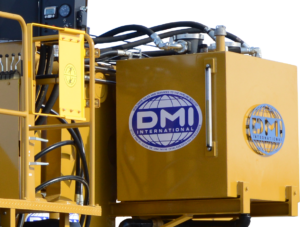Hydraulic Oil: High Temperature Effects
 Hydraulic Oil
Hydraulic Oil
Fundamentals
In part 1 the hydraulic oil series we discussed the basics of viscosity and concluded the importance of selecting the correct oil viscosity based on the environmental and operational effects on the system. In part 2 we discussed a few general conditions that affect oil life. Heading into part 3 we deepen the discussion on how temperature affects the life of the oil as well as the service life of the components in the system.
The animating element of a hydraulic system is the hydraulic oil. For something so important you would think it would get more attention. We buy it in bulk so we can get the best price but we give little attention to how we store it and transfer it into our equipment. We allow it to overheat and get dirty and yet we expect it to perform everyday and keep our machines running.
Fortunately, hydraulic oil is quite forgiving and even under abuse and neglect, it continues to perform. But if we treat it properly, keep it clean and moderately cool, it will take care of our equipment and take care of our customers. In this series we will discuss how temperature affects the life of the oil.
High Temperature Effects
The life span of hydraulic oil is cut in half for every 20°F temperature rise above 140°F. For example, if you expect 1000 hours of use from your hydraulic oil operating at 140°F then you could expect 500 hours of use if you operate at 160°F. Similarly, you could expect 250 hours at 180°F; 125 hours at 200°F; And 60 hours at 220°F. Consideration should be given to servicing the oil and the hydraulic system for a pipe bending machine that operated through the hot summer months and probably operated with hotter than normal hydraulic oil.
As the temperature of the oil rises, the oxidation rate of the oil increases. As mentioned earlier, as oil is heated a chemical reaction called Oxidation takes place, raising the acidity level of the oil. At high acidity levels brass components exposed to the acidic oil begin to corrode and steel parts begin to varnish. Brass components are typically found on pressure bearing wear surfaces and when these surfaces begin to wear, your equipment may begin to experience a reduction in pressure capability and have difficulty bending pipe. Likewise, valve spools controlled with electro-hydraulic actuators or hydraulic actuators may experience difficulty when shifting. But, valves with manual controls may not be as noticeable since the operator tends to just pull the handle harder when the spool sticks.
Written by: Pat Kinnison and Chrystal Bates
Copyright 2020
All right reserved
